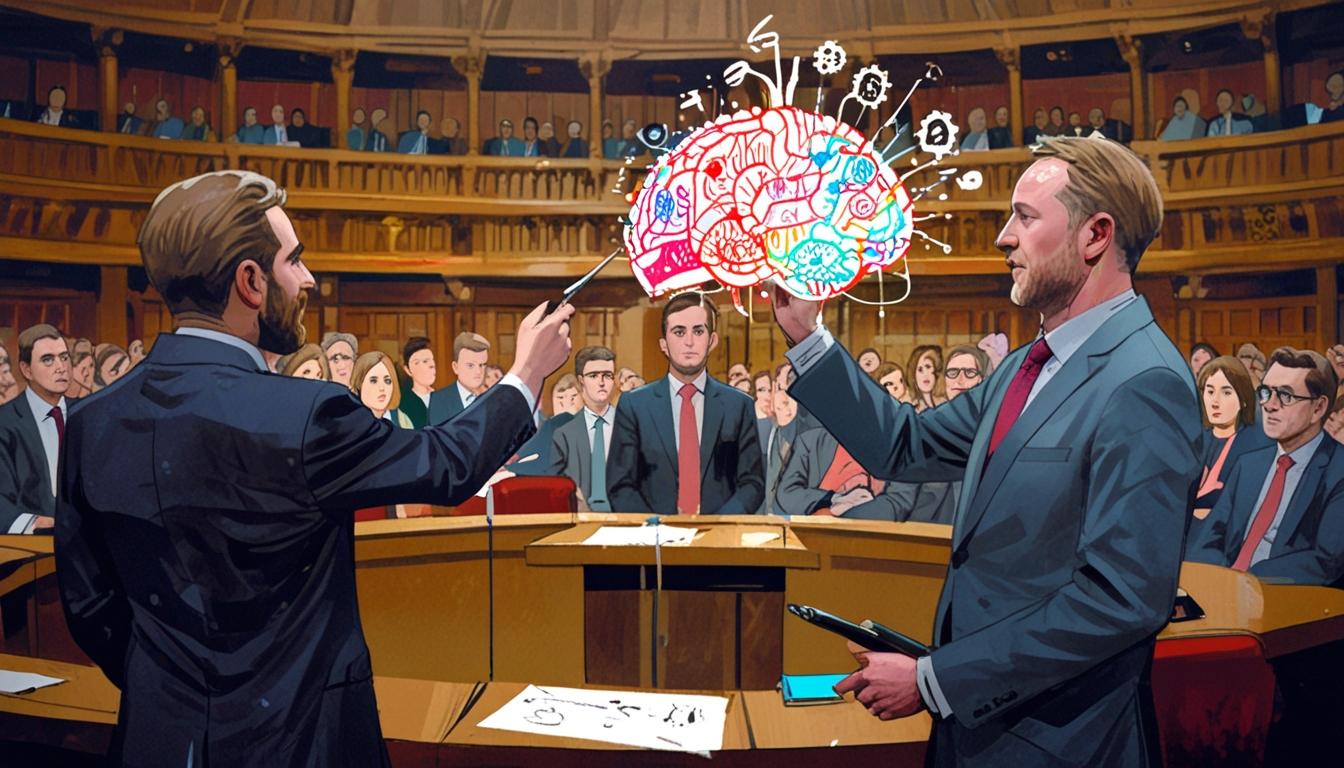With the U.K. Data Bill set to undergo a final vote in Parliament next week, uncertainty looms over its passage as governmental efforts to appease critics have met with limited success. The proposed legislation has sparked significant controversy, particularly concerning its provisions that would allow artificial intelligence (AI) companies to utilise copyrighted works without seeking prior permission from rights holders, unless those owners choose to opt out. This aspect of the bill mirrors similar measures found in the European Union’s AI Act.
The government, led by Prime Minister Keir Starmer, argues that such a provision is crucial for maintaining the U.K.'s competitive edge in the rapidly evolving tech landscape. However, this viewpoint is strongly contested by various stakeholders in the creative sectors. Prominent figures within these industries have vocally opposed the legislation, expressing concerns that the unrestricted use of their intellectual property by technology firms could severely undermine artists’ livelihoods.
As the Parliament vote approaches, the government reiterated its commitment to undertake an economic impact assessment regarding the changes proposed to U.K. copyright law, along with pledges to publish reports addressing transparency, licensing, and data access under the new framework. Nonetheless, critics have dismissed these assurances as insufficient.
This week, Science and Technology Secretary Peter Kyle sought to engage with representatives from the music industry to alleviate their apprehensions. However, progress appears to have been minimal. British composer and former Stability AI executive Ed Newton-Rex commented on the situation, stating there exists "a ton of evidence" suggesting that the government's proposal would be detrimental to creators. He remarked, “we don’t need an economic impact assessment to tell us that,” indicating a belief that the negative effects on artists are already clear.
In further discussions, Kyle raised concerns that without alterations to the copyright framework, AI firms might relocate their operations to jurisdictions like Saudi Arabia, where they would be outside the reach of British courts, thus limiting creators' ability to contest the appropriation of their works. Prime Minister Starmer has echoed this sentiment in conversations with other Members of Parliament, reinforcing the argument that such a shift could cause irreparable harm to the domestic creative industry. However, opponents of the bill accuse the government of yielding to pressure from U.S. tech firms and interests associated with the Trump administration.
Prominent film producer Beeban Lady Kidron highlighted specific concerns about the bill’s shortcomings, questioning the government's commitment to protecting U.K. property rights and recognising the growth potential within the nation’s creative and innovative sectors. Kidron, who previously succeeded in including amendments that mandated AI companies to adhere to existing U.K. copyright laws, saw those protections stripped from the bill at the urging of No. 10. Members of the Liberal Democrats have expressed intentions to reintroduce these amendments prior to the impending vote.
Liberal Democrat spokesperson Victoria Collins articulated the party’s stance, asserting that “an economic impact assessment should be the bare minimum creatives can expect.” She emphasised the party's commitment to preventing the dilution of AI-related copyright laws in the Commons and urged MPs to stand in support of British creators as the vote approaches.
As discussions persist and various viewpoints clash, the outcome of the U.K. Data Bill remains uncertain, reflecting broader challenges in balancing technological advancement with the protection of intellectual property rights.
Source: Noah Wire Services
